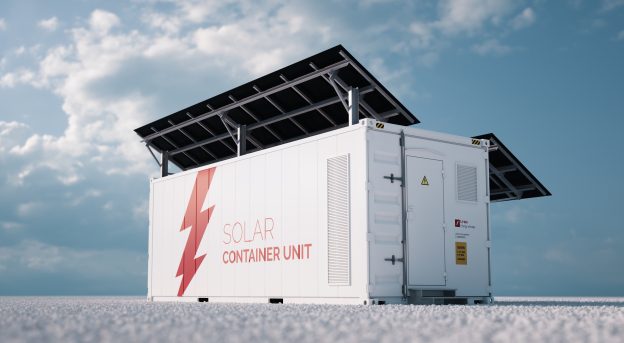
GUS Technology, guided by Fubon Securities, is set to hold an investor briefing before its debut on the Emerging Stock Market on May 12th, with a listing price of TWD 30 per share. The company has announced that its new Jhongli factory will start production in the third quarter. With current orders, Chairman Chang Chung-chieh anticipates the factory to be operating at full capacity by the third quarter of next year, with overall operations expected to turn profitable in the second half of next year. GUS Technology aims to meet the demand of its three major customers, which is estimated to reach 3.5 GWh by 2025.
Chang stated that the company intends to focus on developing battery core technologies. Its primary focus will be on lithium titanate (LTO) and high-nickel ternary materials, which require the most difficult manufacturing processes and advanced technical expertise. Currently, GUS Technology produces large-sized pouch battery cores and battery modules for use in a wide range of industrial applications, including factory automated guided vehicles (AGV), electric scooters, electric buses, 48V mild hybrid electric vehicles (MHEVs), electric vehicles, ships, and energy storage systems.
Chang further highlighted that LTO batteries have slightly lower energy density compared to lithium iron phosphate but are safer and offer faster charging and discharging rates, a broad working temperature range, and an extended life cycle. As a result, GUS Tech has attracted the attention of Japan’s Kaneka Corp, securing orders for AGV batteries.
Chang also shared that the company currently has a 10 MWh facility in Xizhi and has invested TWD 4 billion in building Taiwan’s first battery gigafactory in Jhongli, Taoyuan. The factory was completed in April of this year and is expected to meet the needs of major customers such as Kaneka once production begins in the third quarter. With a planned annual output of 6 million battery cores, the factory’s production capacity is expected to jump from 250 MWh to 1 GWh by the third quarter of 2024.
Chang revealed that GUS Tech’s strong suit lies in pouch batteries, which offer advantages over cylindrical and prismatic batteries in terms of weight, capacity, internal resistance, and safety. Although materials have the most significant impact, pouch technology helps with heat dissipation, making it more suitable for use in EVs. High-end models such as Porsche and Audi EVs currently use pouch batteries.
Yeh Kuo-wei, COO and CTO of GUS Tech, stated that the LTO pouch battery core developed by the company is safe, having passed puncture tests without burning or exploding. LTO batteries can operate at temperatures ranging from -40⁰C to 75⁰C and retain 91% of their capacity after 8,000 cycles. They also experience minimal temperature increases during charging and discharging, meeting targets for rapid charging and discharging.
Yeh pointed out that pouch batteries are a type of semi-solid or liquid lithium-ion battery, characterized by an aluminum-plastic film covering their outer layer. Unlike cylindrical batteries, pouch batteries resemble aluminum foil packages, which makes them 40% lighter than steel-shell batteries and 20% lighter than aluminum-shell batteries. This effectively reduces their overall weight and allows for easy development into various shapes and sizes.
Yeh further emphasized that GUS provides customers with one-stop services from materials and battery cores to modules, enabling customers to penetrate niche markets and scale up production as needed. GUS has precisely mastered all eight steps of the lithium battery production process, allowing for highly customized battery core products. Currently, there are only two manufacturers in Taiwan that produce pouch batteries, with GUS Tech being the only one focusing on LTO batteries.
Looking ahead to the future, Chang emphasized the company’s optimistic outlook on operations due to the continuous growth in global demand for electric vehicles, energy storage, and other renewable energy sources. Based on current orders, the Jhongli factory is projected to reach full capacity by the third quarter of next year. As large-scale production ramps up, the company anticipates a shift from losses to profits in the second half of the year. Demand from its three major customers will reach 3.5 GWh by 2025, GUS foresees positive growth in its operations.
(Image Source: TechNews)






